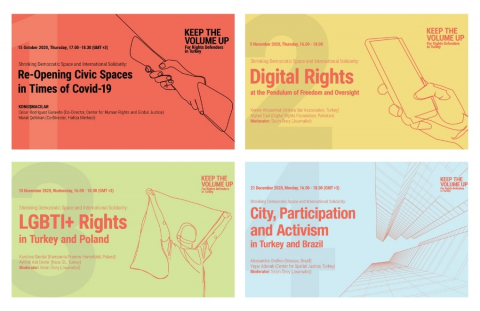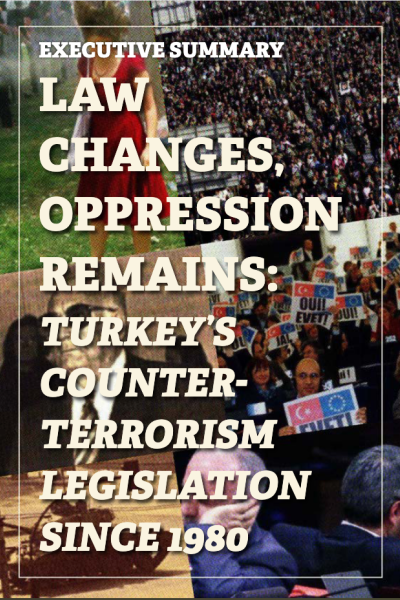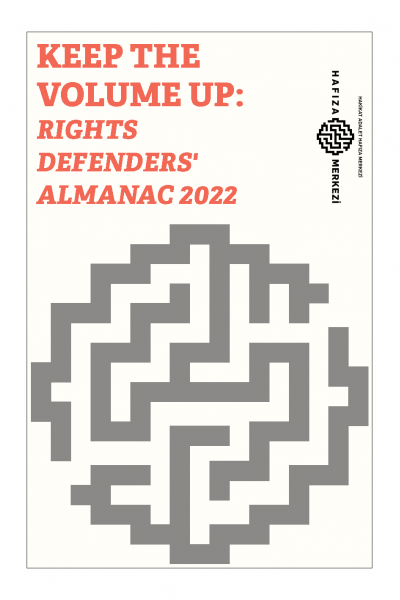
Digital Rights at the Pendulum of Freedom and Oversight
In these unprecedented times, the Covid-19 pandemic is increasingly being used by many illiberal and autocratic countries as a justification to further restrict democratic space. Turkey is one of the countries where the human rights record only worsened with the government’s response to the pandemic, in already shrinking democratic space. Yet, this situation in Turkey is not unique. Human rights defenders (HRDs) around the world have faced new challenges under the often draconian and rights’-infringing measures imposed by governments under the guise of addressing the pandemic.
In light of this shared phenomenon, Hafıza Merkezi (Istanbul) and the Association for Monitoring Equal Rights (Istanbul), in collaboration with the Netherlands Helsinki Committee (The Hague), organised a series of panel discussions, entitled “Shrinking Democratic Space and International Solidarity,” inviting an HRD from Turkey to each event to share experiences and lessons learned with a counterpart from another country. The resulting discussions served as a forum where defenders discussed common obstacles, exchanged ideas, and built international solidarity.
Find out more about the whole series.
On 5 November 2020, in this second event of the series, Nighat Dad of Digital Rights Foundation (Pakistan) and lawyer Kerem Altıparmak (Ankara Bar Association), discussed digital rights in Pakistan and Turkey.
(Re)watch the event:
Digital Rights at the Pendulum of Freedom and Oversight
Sezin Öney
Lawyer and HRD Nighat Dad opened the discussion by recollecting that when she started to work as a lawyer in 2007, she became increasingly aware of widespread gender-based discrimination in Pakistan. What led Dad to turn specifically to digital rights was the restriction women faced in access to even the most common communication tools, such as mobile phones. At the same time, lawyer, academic and HRD Kerem Altıparmak became increasingly interested in civil society activism through his academic career and work as a lawyer. In 2007, he was working on a report on a new law in Turkey, namely Law No. 5661 “Law on the Regulation of Broadcasts via Internet and Prevention of Crimes Committed through such Broadcasts.”

Photo: Nilotpal Kalita, by Unsplash
Targeting cybercrime: beginnings of encroachment
The fact that both Dad and Altıparmak’s initial focus on digital rights started in 2007 is no coincidence, as it corresponds with a time when the space for digital rights started to narrow down. Dad pointed out that the ban on “blogspot.com” in Pakistan in 2006 was the start of legal regulations that alleged to be targeting “crimes committed over the internet.” Similarly, in Turkey, restriction of digital rights began with the claim of criminal acts being committed online. Dad emphasized that restrictions on digital rights in today’s Pakistan are carried out with many different excuses such as “national security” and “insulting religion”— similar tactics used in Turkey. According to Altıparmak, after the adoption of Law No 5651 in 2007, the scope of legal restrictions in Turkey started to expand. In 2014, 2016 and 2020, further amendments brought to this initial law allowed the enforcement of further restrictions.
Threat of criminal sanctions
In both Turkey and Pakistan, there is a real and significant threat of criminal sanctions hanging over the heads of social media outlets operating in the respective countries. In other words, if social media platforms, such as Twitter and Facebook, do not work in harmony with the government, they risk charges with increasing fines, and eventually face the danger of being banned from the country.
According to Altıparmak, the 1 million Euro fine imposed on international social media companies on 4 November 2020 in Turkey indicates that such sanctions against companies like Twitter and Facebook may be routinized, and eventually even lead to the expulsion of these companies from Turkey. Similarly, in Pakistan, there is legislation stipulating that international media companies have to share their users’ data with authorities. Moreover, just as in Turkey, these companies have to appoint a local representative who cooperates with the government.
Increased interest for the digital space
As Altıparmak explained, the Turkish government is increasingly focusing on narrowing the space of social media in Turkey, partially because of the growing interest of its population as a result of the government disabling traditional media. As the information void created by absence of traditional media in some countries is filled by social media, governments increasingly focus on constraining digital rights and activism. Altıparmak argued that overcoming the official restrictions by using sophisticated technical methods is not a sustainable solution: it is impossible for all internet users to have access to these methods. In fact, access to digital platforms is by nature completely restricted for some segments of the population once government restriction are in place.
Despite the increasing pressure on social media, some digital platforms also provide new venues to promote and protect human rights. For example, Dad founded the Digital Rights Foundation, which established a communication line to help women and all those discriminated against because of their sexual identity. This line serves to provide support and counselling to victims who encounter violence and harassment threats. The assistance offered ranges from advise on how to best exercising their rights to psychological support. This line is also part of a project called “Hamara Internet,” which aims to protect women’s rights online.
Digital Rights Sphere in Times of Covid-19
Activists working in the field of digital rights already used the internet extensively before the pandemic broke out in early 2020, and their use thereof has only increased since. While some find it tiresome, digital rights activists have also found their experience and accumulated knowledge was useful for other non-governmental organizations with less experience in digital communication.
The pandemic may have increased our awareness of the importance of digital platforms and relevance of digital rights. It is evident that we will increasingly rely on digital communication in a post-pandemic world, making online spaces more prone to pressure. However, this will not stop human rights defenders from finding innovative methods of continuing their struggle against shrinking civic space online, both within countries and internationally.









